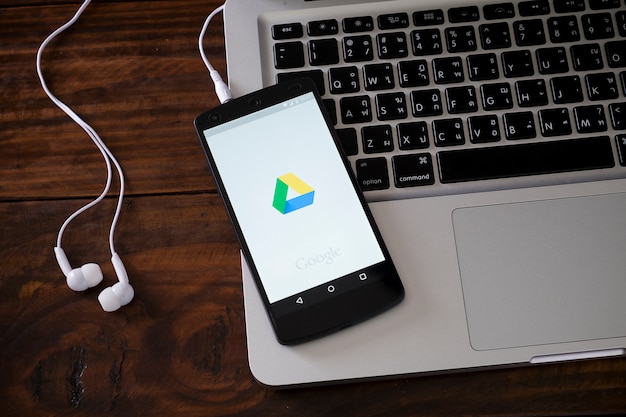The other day I stumbled across a news item that at first glance smelled of typical Google data octopus vibes - but then everything changed. It was about Google Gemini, the powerful AI toolkit, and an important change: data protection, especially for Android users. My curiosity was piqued and I asked myself: What does this mean for me, for you, for everyone who uses their smartphone? And why should we even care about this topic? Well, I'm going to take you on a little journey through the world of data protection at Google Gemini and Android, so that by the end you're not only smarter, but also smiling a little more when it comes to technology.
What is behind Google Gemini and why is data protection so important?
Google Gemini is a kind of super-brain for artificial intelligence that Google has developed to make various services smarter and more efficient. It is a kind of further development of existing AI models that are to be integrated more deeply into our everyday tools. However, the more intelligent these systems become, the more important the protection of our data becomes. Data protection is a hot topic, especially with Android, the world's most widely used operating system - after all, our personal information is attached to the cloud like a magnet for hackers and analysis algorithms.
What Google is doing now is clever: instead of collecting everything it can, the company is opting for a more data protection-friendly version of Gemini. That sounds good, doesn't it? But what does it actually mean? Essentially, it means that Google is placing more emphasis on respecting users' privacy when using basic functions in Android apps and services. It's like having a good friend who doesn't tell you everything. It's a kind of balancing act between smart technology and your personal data protection.
How is Google Gemini changing data protection on Android?
This is where it gets interesting: until recently, everything at Google was pretty open - data was collected until your ears were burning. The downside of this is that not every user always knows exactly what is happening with their data. Google has recognised this: Data protection is now tipping the scales for many when it comes to using services. This is why the strategy has been rethought and reorganised.
Now the motto is: Less data for training, more control for the user. Google wants to reduce the data flow for basic functions of Gemini on Android. This means that less data is automatically transmitted to Google when you give voice commands or use other functions. This sounds like a feel-good ambience, but it is also a challenge for Google because the AI still has to work. A fine balance must therefore be found between privacy and functionality, and Google seems to be working on this.
Why is this relevant for you as an Android user?
If you're wondering why this is even important: imagine you use your smartphone every day, read messages, send messages, take photos - and everything is stored somewhere, analysed or sold on. This is the reality for many users. If Google improves data protection with Gemini, this means that your personal data will be less likely to be floating around the internet unchecked. So it's about less surveillance, more control and, ideally, more privacy.
Of course, it's also a balancing act for Google: on the one hand, they want to develop an AI that is intelligent and reliable, but on the other hand, they have to respect legal requirements and the wishes of users. And this is where your say comes into play. By informing yourself and consciously choosing which data you disclose, you can actively participate in your digital self-determination. Because at some point it will become clear: the mobile phone is not just a tool, but also a living surveillance apparatus if we are not careful.
What does this mean for your daily use?
In plain language, this means that you can specify how much data you want to share in Android settings and Google services. New measures are designed to strengthen your privacy without you having to do without all the smart functions. It's like a buffet: you decide what goes on your plate and what doesn't. It's your right to retain control over your data.
And the best thing? Google emphasises that the protection of your privacy is at the centre of the development. For example, no unnecessary data should be collected for simple voice commands or when using basic functions. For us users, this means less junk data in our digital inbox and more security on our smartphone. Sounds pretty smart, doesn't it?
What does this mean for the future?
In the long term, this could be a win-win situation: Google shows that data protection and technical innovation can go hand in hand. For us users, this means more transparency and less surveillance. For Google, it means creating trust - after all, who wants to use a system where you wonder who is reading everything? It is a small step towards digital self-determination, but a significant one.
Of course, it remains to be seen how well Google keeps its promises. But the direction is right - away from the data superhighway towards a more private and smarter Android experience. And let's be honest: with all this digitalisation, it's good to know that we still have a little more control over our digital lives.
Conclusion: More data protection is possible - even with Google Gemini
To summarise: Google is making an effort to put data protection at the centre of Google Gemini on Android. This is good news, as privacy is becoming increasingly valuable in the digital world. However, we should not just rely on promises, but actively participate: Check settings, consciously share data and remain critical. Because at the end of the day, our data is our right - and we should protect it like a treasure that belongs only to us.
